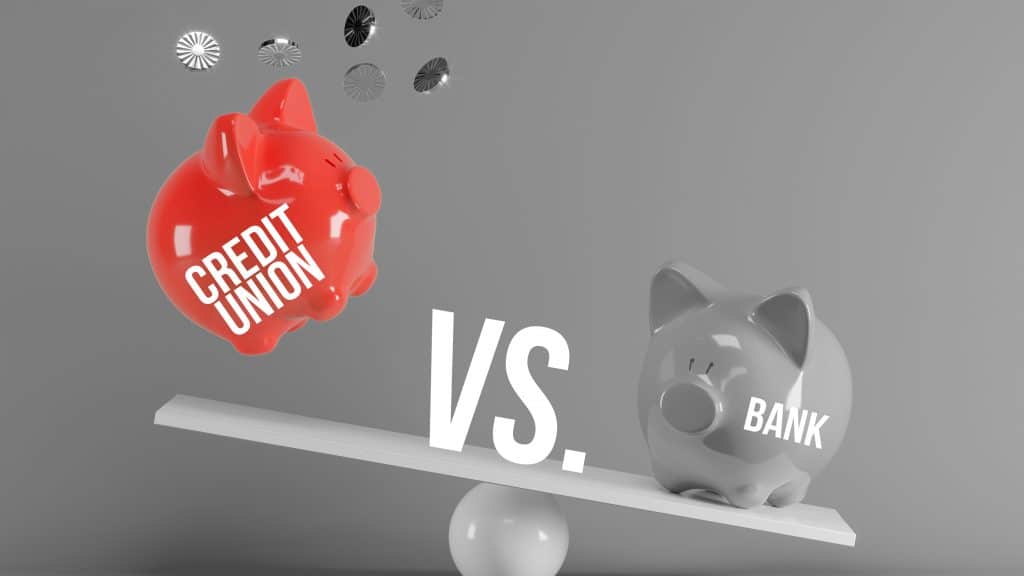Credit Unions and Banks: What’s the Difference?

What’s the difference between credit unions and banks? It’s a question we get a lot – especially from individuals who are looking for a financial institution for the first time. If you have regular banking needs, chances are you’ll find what you need at both credit unions and banks. These include checking and savings accounts, money market accounts, home and auto loans, small-business loans, and credit cards.
However, it’s not just about the products they offer. When it comes to credit unions and banks, there are some important differences between the two. These differences may sway your banking decision one way or the other. Let’s take a look:
Profit Status
Banks are for-profit institutions. They’re in business to make money for their owners and stockholders. Many of the banks you’re familiar with are huge corporate enterprises with big boards of directors, high stock values, and a national, or even global, reach.
On the other hand, credit unions are non-for-profit entities set up as cooperatives and owned solely by the members. Credit unions typically open membership to individuals who share a common bond, such as the community where they live. Credit unions do not have to worry about making profits for shareholders.
Why is profit status so important? Because it impacts an institution’s every decision on how it charges and serves its customers.
Rates and Fees
Credit unions often charge lower fees than banks, have lower deposit requirements to open accounts, and often have no minimum balance requirements. Because banks are focused on making a profit, they generally charge higher fees and have higher interest rates on loans. They are also typically more restrictive on who they will lend money to.
A credit union strives to provide its members with the best terms possible. As a result, members generally get lower rates on loans, and get higher APYs on their savings accounts. Additionally, credit unions may also pay dividends to their members if they have surplus income. The savings can really add up for consumers. According to a report by the Credit Union National Association (CUNA), a household belonging to a credit union can realize an average annual financial benefit of $178 versus a household that partners with a bank.
Service
Credit unions and banks both know service is important. But because credit unions exist to meet their members’ needs, customers often receive better service than they might find at a large bank. Additionally, their smaller size usually allows credit unions to serve their customers more personally, even offering financial education and outreach.
Larger banks do tend to offer a broader range of services, which might be more appealing to those customers who have unique and specific financial needs. A large corporation, for example, would likely be better served by the offerings of a conventional bank.
Insurance
There’s a common misconception that a member’s money may be at risk because credit union deposits are not covered under the Federal Deposit Insurance Corporation (FDIC). Credit union deposits ARE insured, but by different organizations. The National Credit Union Administration (NCUA) insures all federal credit unions. Private and community credit unions have insurance through other institutions, such as American Share Insurance (ASI). So, whether you partner with a bank or a credit union, you can be sure your money will be safe.
Membership
Banks are open to anyone seeking their services, assuming they are in good financial standing. Credit unions, on the other hand, are available only to members. While some credit unions are very restrictive about who can join, others are open to anyone willing to hold a membership “share.” As a community credit union, FFCCU is open to anyone who lives, works, worships or attends school in Cuyahoga, Geauga, Lake, Lorain, Medina, Portage, and Summit counties.
Credit unions often go above and beyond to celebrate and thank their members as well. With member perks like discounted rates and tickets and events such as member appreciation days! FFCCU holds a member appreciation day annual on International Credit Union (ICU) Day in October. 2021 ICU day is Thursday, October 21 – so come in for some swag and some treats!
 Credit Union and Banks? Which is right for you?
Credit Union and Banks? Which is right for you?
When it comes to credit unions and banks, the decision is personal. But consumers who need lower rates and fees, higher APYs, a personal touch when it comes to customer service, and access to excellent, free financial education may do better with a credit union.
Posted In: FFCCU News and Info, FFCCU Services, Member Perks




